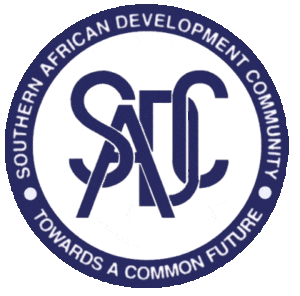MBABANE – Swaziland has failed to issue the SADC harmonised driver’s licence because it is yet to incorporate into the local legal framework, a treaty signed in 1996.
SADC stands for Southern Africa Development Community. The position under the Swazi Constitution (Section 238) is that a treaty becomes law in the country only after it has been incorporated into domestic law by an act of legislative transformation. Only a self-executing provision of a treaty that has been approved by parliament becomes law automatically, provided that it is not inconsistent with the Constitution or an Act of Parliament. Government’s tardiness towards incorporating the SADC Protocol on Transport, Communication and Meteorology into domestic law has caused problems for local drivers, who have to contend with uncompromising traffic police when they venture into South Africa. The police want a SADC-approved licence, failing which they impose heavy fines of up to E1 500. Mtiti Fakudze, Minister of Foreign Affairs and International Cooperation , acknowledged that the country still had a lot of international instruments that had not yet been ratified. He said the delay was caused, mainly, by the fact that legislators first have to be oriented to the laws by experts. “This usually is a long process and requires the facilitation of workshops, which further consume a lot of time,” he said. Specifically addressing the issue of the SADC Protocol on Transport, Communication and Meteorology, the minister said domestication of the law was a province preserved only for the Ministry of Public Works and Transport. “Ours was only to table the treaty from the regional body (SADC). It is then up to the relevant ministry, whose portfolio the treaty falls under, to make necessary arrangements for it to be localised,” he said. The object of the protocol is to ensure efficient transport of persons and goods across the region. An immediate consequence of government’s nonchalant approach has been the inconvenience greatly suffered by local drivers travelling across the region, as enforcement officers demand that drivers produce the new licence format.Among other goals of the protocol is to establish transport, communication and meteorological systems which provide efficient, cost-effective and fully integrated infrastructure and operations, which best meet the needs of customers and promote economic and social development. Ntuthuko Dlamini, Minister of Public Works and Transport, when contacted on the delay in the ratification of the protocol passed the buck on to parliament, saying that a stand-off he had with legislators resulted in the delay in the finalisation of the ratification process.The minister’s response, however, did not go down well with Prince Guduza, Speaker in the House of Assembly who said the minister should own-up to his own inefficiencies instead of shifting blame.
“There is no law that is being held up in parliament. The proposed Bill had many flaws, so the minister was told to make the necessary amendments before he could table it,” he said. Other SADC countries that signed the treaty have already incorporated it into their municipal laws in order to give it a local effect. South Africa and Zimbabwe for instance, have implemented most of the stipulations of the Protocol. It is an international law norm that whenever a country agrees to be party to any particular international law instrument or treaty, it has to, thereafter, see to it that the treaty is domesticated so that it has legal effect in the municipal legal framework. The SADC Protocol on Transport, Communication and Meteorology seeks to give the country’s transport, communication and meteorology functions a regional and global character. This seeks to facilitate easy movement and communication among member states which have ratified the treaty. The Protocol was signed in Maseru on August 24, 1996 in two original texts: English language and Portuguese. Source: http://www.times.co.sz





